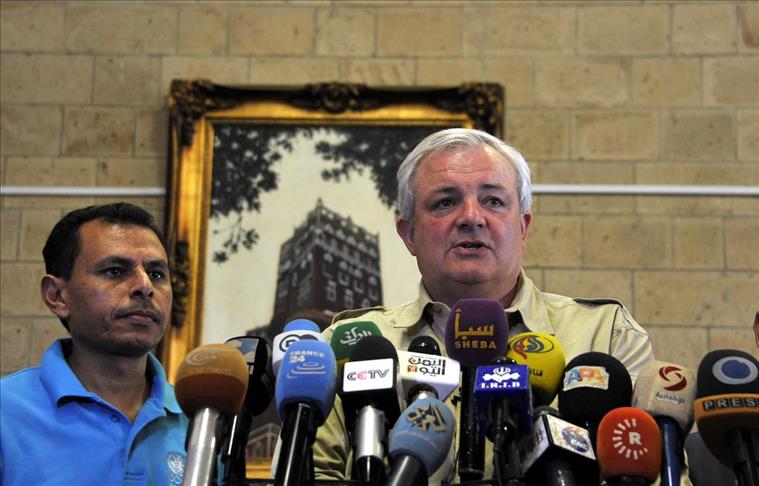
GENEVA
A senior U.N. figure has said he is “horrified” by what he calls “the total disrespect for civilian life” shown in the Syrian conflict.
U.N. humanitarian head Stephen O’Brien was speaking on Monday after concluding a three-day visit to Syria.
"I have seen for myself the shocking devastation wrought by the brutal conflict and the impact this has had on ordinary people. Sadly, the conflict continues to escalate," O’Brien, the U.N.'s Under-Secretary-General for Humanitarian Affairs and Emergency Relief, said.
"In Homs I saw with my own eyes inestimable human suffering. In the Old City, I saw the complete destruction of almost every home, beyond which lies the destruction of lives.
“Behind every window of every destroyed home, we must remember that there were people whose lives have been shattered," O’Brien said.
In Syria, civilians have borne the brunt of the conflict. More than 220,000 people have been killed, more than a million injured and almost half of the Syrian population displaced.
At least 100 people -- including a number of women and children -- were reported to have been killed in an airstrike on a market in Douma, northeast of Damascus over the weekend.
"Attacks on civilians are unlawful, unacceptable and must stop. I am horrified by the total disrespect for civilian life in this conflict. I appeal to each and every party to this protracted conflict to protect civilians and respect international humanitarian law," O’Brien added.
Water cuts
According to the U.N., at least five million people in Damascus have been without water for three days due to actions by armed opposition groups.
Two million people in Aleppo have also been deprived of their water supply for 17 days, while 300,000 people in Dar’a and surrounding villages have endured water cuts seven times this year, the U.N. noted.
"It is unacceptable for those engaged in conflict to use access to water and other services as a weapon of war," said O’Brien.
"This conflict -- now in its fifth year -- severely affects not only the lives of millions of people in Syria, but also continues to undermine the security of the region and beyond," he added.
The Syria conflict began in early 2011 when the regime of President Bashar al-Assad responded with unexpected ferocity to popular protests that erupted as part of the Arab Spring uprisings.
More than four years of intense fighting has left the country divided between pro-Assad forces and a number of heavily armed opposition factions, which are often at odds among themselves.
Roughly half of the country’s population has been displaced by the violence, with over four million Syrians now seeking refuge in neighboring countries, especially Turkey, Lebanon, Jordan and Iraq.
Anadolu Agency website contains only a portion of the news stories offered to subscribers in the AA News Broadcasting System (HAS), and in summarized form. Please contact us for subscription options.

